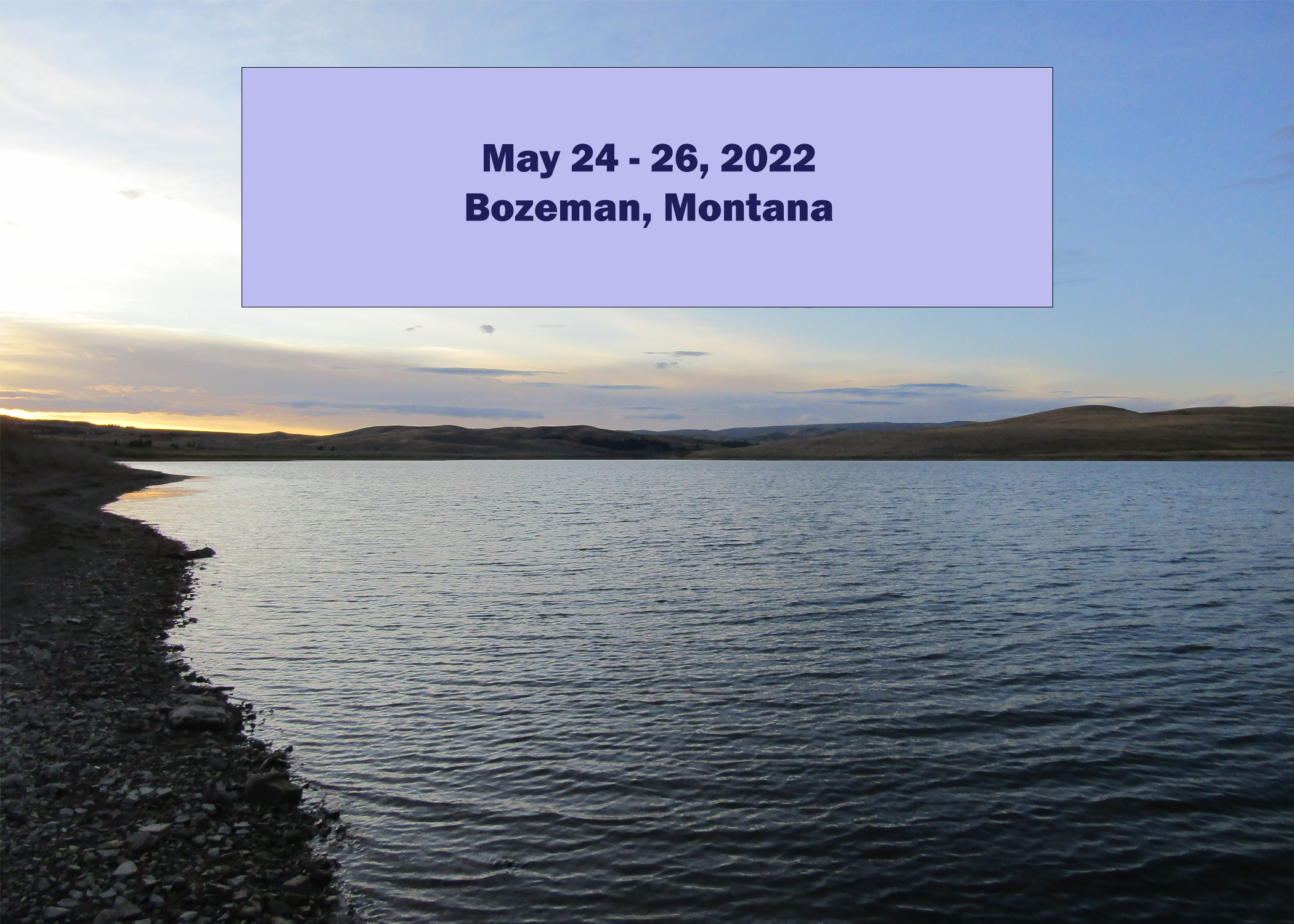Interdisciplinary Regional Workshop
Water in the West: Toward Convergent Solutions to Water Security

Water is the life blood of the North American West. We depend on it to produce our food, to power and supply our homes, to fuel our industries, and to sustain the wildlife and natural ecosystems that we cherish. Yet this vital resource is facing increasing threats from climate change impacts, population growth, and various contaminants. Northern Rockies and Plains States are already seeing increased early spring flooding and late summer drought and it is vital that we prepare our communities to be resilient against these changes.
These threats are complex and interactive. Solutions will require integrating knowledge from a variety of physical and natural sciences (e.g., hydrology, ecology, agriculture, forestry, chemistry, environmental science, biology and health), with traditional ecological knowledge and knowledge of the social, historical, cultural, political, and economic variables that compound the challenges we face, along with the development of technological innovations (e.g., from optics, materials science, artificial intelligence, environmental, chemical, and biological engineering). Moreover, ensuring that the research translates into genuine social benefits requires collaboration with communities, tribes, government agencies, non-profit, health, business and industry organizations, policymakers and activists.
In other words, real solutions will require what the National Science Foundation has referred to as convergent research or collaborative transdisciplinary research for social benefit.
- What exactly is convergent research and how is it best achieved?
- What are the challenges of doing such collaborative work and how are they overcome?
- What would convergent research for protecting our water systems (lakes, rivers, reservoirs, and snowpack) look like?
These are the central questions of this three day workshop.
,
- To develop a model for convergent research between physical scientists, social scientists, humanists, engineers, and non-academic stakeholders for protecting water in our region.
- To identify the environmental and social threats to our water systems and key gaps in knowledge that would be required to address them.
- To create a network of diverse researchers, scholars, and community partners across our region committed to protecting water and to build capacity for transdisciplinary and multi-partner convergent research.
- Development of new collaborations across our region to protect water security and better meet needs of communities.
- Strategies for successful convergent research and ideas for addressing current gaps in knowledge that would help protect water in our region.
- Possible special journal issue on one or more themes developed by participants.
Keynote speakers and evening events include:
- Nicole Motzer: "Convergence research: what it is, why it matters, and how we get there for water in the West"
- Film screening: "Life in the Land: Connecting People and Place in Montana," with Lara Tomov and Lailani Upham.
- John Doyle: "Complications Addressing Water Issues on the Crow Reservation"
- Kelsey Leonard: "Inherent Relationships, Earth Law, and the Pursuit of Water Justice"
- Faith Kearns (California Water Institute, UC Berkeley): Getting to the Heart of Science Communication
- “Walking the Water Way,” presented by Montana InSite Theatre
Follow this link for information about workshop facilitators.
Please follow this link to view the tentative workshop and evening event schedule.
We will provide two shuttles that will make timed pickups at the workshop venue, Museum of the Rockies, and the three hotel sites (the GranTree, the Lewis & Clark, and the dorms). Additionally, the shuttle service will transport workshop participants to and from the final water performance at Story Mill Park.
For participants staying at the Best Western GranTree, the hotel offers a complimentary shuttle to and from the airport. Please visit this link for more information: https://www.bwpbozeman.com/amenities/shuttle/.
We are excited to offer three lodging options for workshop participant. Please visit this link for more information.
The workshop will take place in Bozeman, MT, in the heart of the Rocky Mountains and about 80 miles from Yellowstone National Park. Those flying can fly into Bozeman Yellowstone International Airport, which is a 20-minute ride to downtown Bozeman. For those driving, we are located right on I-90.
Workshop sessions will occur at The Bozeman Masonic Lodge 18 (14 S Tracy Ave, Bozeman, MT 59715)
Evening Events will be at Hager Auditorium: Museum of the Rockies (600 W Kagy Blvd, Bozeman, MT 59717)
The final performance and happy hour event will occur at Story Mill Park (698 Bridger Dr, Bozeman, MT 59715).
Feel free to contact us with any questions or concerns at: stes@montana.edu
